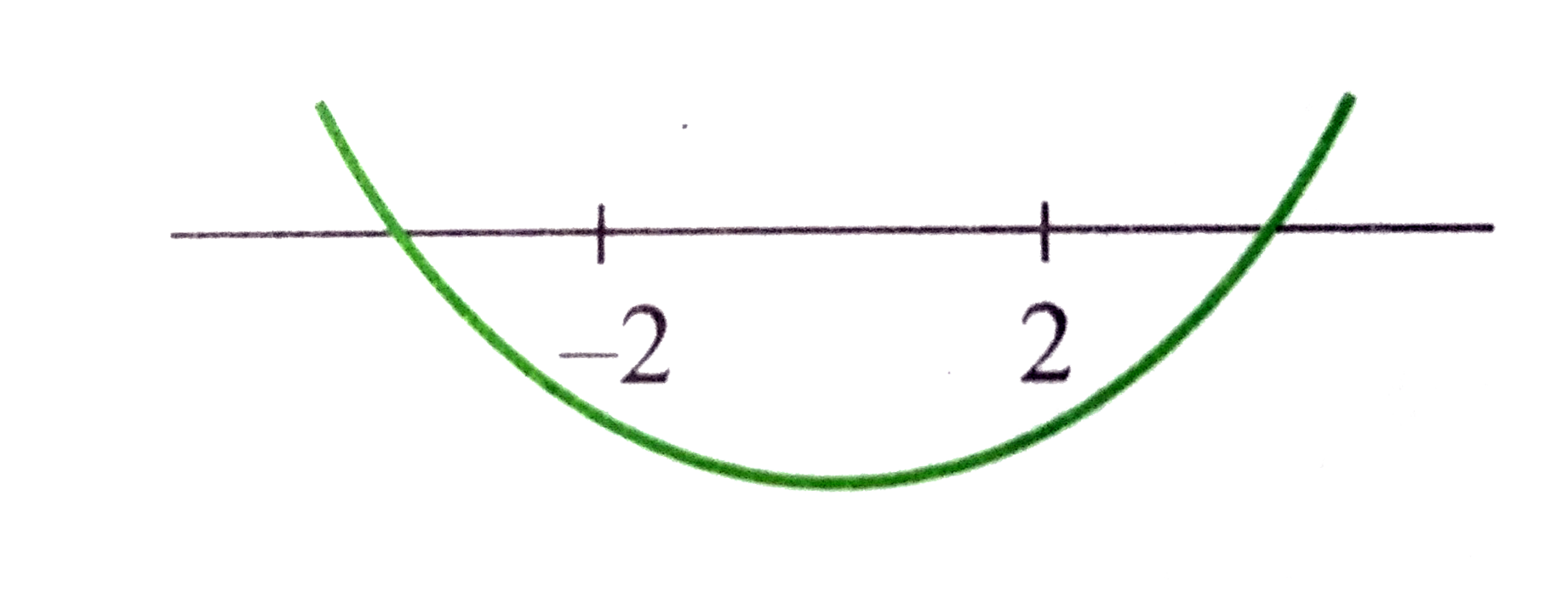If x4+2kx3+x2+2kx+1=0
has exactly tow distinct positive and two distinct negative roots, then find the possible real values of k.
Video Solution
Text Solution
The given equation is (x2+1x2)+2k(x+1x)+1=0
or (x+1x)2+2k(x+1x)+1=0
Putting x+1x=t, the above equation to t2+2kt−1=0
Now, we know that x+1x≥2ifx>0,andx+1x<−2ifx<0 .
So, one of the rots of t2+2kt−1=0 will lie in (−∞,−2) and other root in (2,∞).
∴f(−2)<0
⇒4−4k−1<0
or k>3/4
And f(2)<0
⇒4+4k−1<0
or k<−3/4
Henc, k ∈ϕ.

|
Updated on:21/07/2023
Topper's Solved these Questions
- BOOK - CENGAGECHAPTER - THEORY OF EQUATIONSEXERCISE - Exercise 2.13videos
THEORY OF EQUATIONS
- BOOK - CENGAGECHAPTER - THEORY OF EQUATIONSEXERCISE - Exercise 2.25videos
THEORY OF EQUATIONS
- BOOK - CENGAGECHAPTER - THEORY OF EQUATIONSEXERCISE - Comprehension12videos
THEORY OF EQUATIONS
- BOOK - CENGAGECHAPTER - STRAIGHT LINESEXERCISE - JEE Advanced Previous Year4videos
STRAIGHT LINES
- BOOK - CENGAGECHAPTER - THREE DIMENSIONAL GEOMETRYEXERCISE - Question Bank20videos
THREE DIMENSIONAL GEOMETRY
Similar Questions
Knowledge Check
- Question 1 - Select One
If the roots of 5x2−kx+1=0 are real and distinct then
A−2√5<k<2√5Bk>2√5 onlyCk<−2√5 onlyDeither k>2√5 or k<−2√5 - Question 2 - Select One
For what value of k , kx2+8x+2=0 has real roots
Ak<8Bk>8Ck = 8Dnone of these - Question 3 - Select One
For what values of the parameter a the equation x4+2ax3+x2+2ax+1=0 has atleast two distinct negative roots?
Ap<1Bp=0Cpgt3/4Dp∈(−12,12)
If the equation sin2x−ksinx−3=0 has exactly two distinct real roots in [0,π], then find the values of k .
View SolutionIf the equation 2x3−6x+k=0 has three real and distinct roots, then find the value (s) of k.
View SolutionIf the equation x2+4x−k=0 has real and distinct roots, then
View SolutionIf 5x2−2kx+1<0 has exactly one integral solution which is 1 then sum of all positive integral values of k.
View SolutionIf the equation (x1+x2)2+a(x1+x2)+3=0 has exactly two real roots which are distinct, then the set of possible real values of a is (−132,0) (b) (∞,−132) (−132,132) (d) (132,∞)
View Solution

